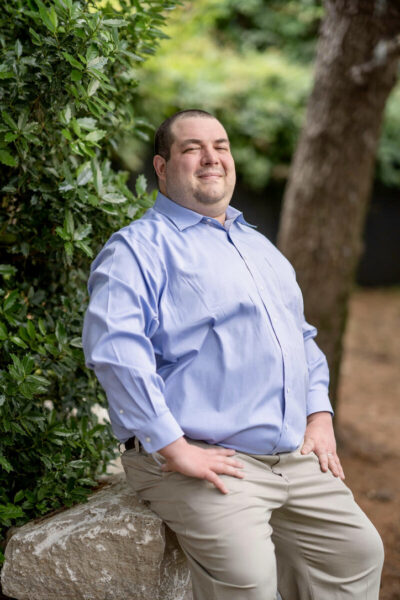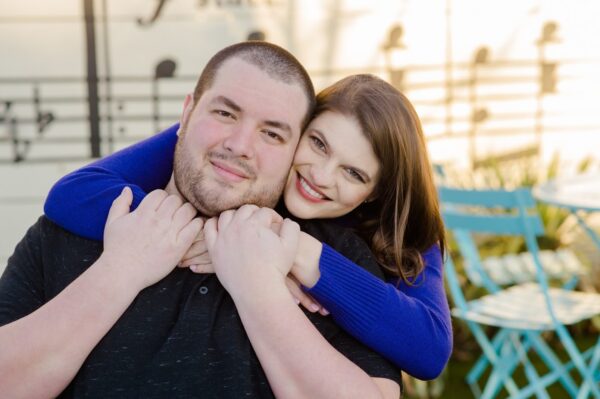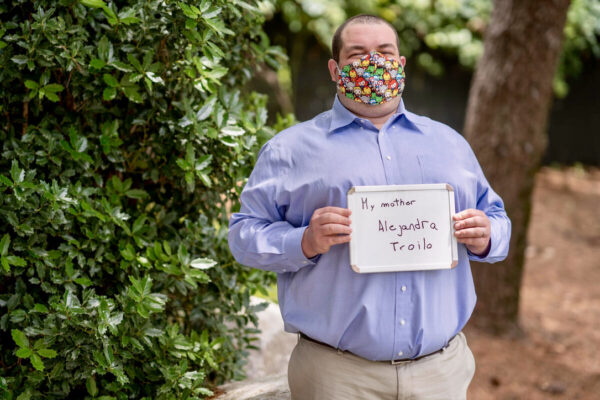When the COVID-19 pandemic shut down in-person clinical experiences for most nursing students nationwide, Vanderbilt School of Nursing master’s student Matias Massaro seized the opportunity to learn a new aspect of providing psychiatric-mental health care.

The practice where Massaro, a psychiatric-mental health nurse practitioner student, was gaining clinical experience shut down in-person visits. So he developed and implemented a telehealth process that allowed him and the clinic’s mental health professionals to continue meeting with patients virtually.
The win-win scenario meant that patients didn’t miss a step in their care and that Massaro and the clinic were able to assess how telehealth could expand access to vitally needed mental health services.
“There’s a mental health crisis in the U.S. today, with nearly one in five adults experiencing mental health issues,” Massaro said. “There aren’t enough psychiatric-mental health providers to help them, and the shortage is projected to get worse. If we can meet with patients through video or phone visits, we expand access to care. The need is great, particularly in rural areas.”
Massaro has long wanted to help people improve the quality of their lives. “My greatest passion by far has always been observing and reflecting upon human behavior,” he said. “Because of my natural curiosity and fascination with mental health, I feel psychology is the field where I can have the greatest impact in helping others improve their lives.” That led him to become a clinical psychologist in his native Argentina. After a few years, he wanted more.

“I wanted to add psychiatric tools, such as medication management, to my skill set to best support my patients,” Massaro said. “Psychology and psychiatry make a really good team.” The first-generation student was also drawn to nursing’s combination of science and compassion.
In 2016, Massaro and his fiancée (now wife), Amber Sturdwick, moved to Texas while he applied to nursing programs. Vanderbilt was at the top of his list—and not just because Amber is a Vanderbilt alumna. Massaro was drawn by the program’s unparalleled quality, accelerated pace and evidence-based, patient-first focus.
Student leader
Two years later, Massaro started Vanderbilt’s PreSpecialty master’s program, an intense 12-month accelerated nursing program designed for people with bachelor’s degrees but without a nursing background. Despite the pace and demands of adapting to a new school system in a new country—not to mention the challenge of studying in another language—Massaro thrived as a nursing student and leader.

He was active in Vanderbilt’s chapter of the American Association for Men in Nursing and served as president his second year. In that role, he organized mentoring activities for his fellow students and explored ways to promote inclusion and advocate for men in the nursing profession. VUSN’s admissions team asked Massaro to share his experiences with prospective students during the school’s open house events, and, later, his professors chose him for the psychiatric-mental health specialty’s outstanding student award. He was even one of the faces of Vanderbilt’s COVID health and safety “Who do you mask up for” campaign.
Counseling fellow students
After finishing the requirements for his master’s degree in August, Massaro—now a certified psychiatric-mental health nurse practitioner—started the School of Nursing’s Doctor of Nursing Practice degree program and was hired to help Vanderbilt students with their mental health, much of which has related to coping with the pandemic.
“I have been working at Vanderbilt’s University Counseling Center to support undergraduate and graduate students during this wild pandemic,” he said. “My ultimate goal is to work in an outpatient setting with young adults, so I could not have asked for a better job right out of the MSN program.”
Massaro’s doctoral research focuses on measurement-based care for depression and anxiety. “I enjoy working with patients experiencing depression or anxiety, as I feel they are the cold or flu of the mind,” he said. “No matter who you are, you could experience either one. When you have them, it feels overwhelming. Fortunately, as a provider, I have a lot of tools to improve patients’ experiences.”
This profile is part of a series of stories and videos highlighting undergraduate and graduate students in the Class of 2021.


